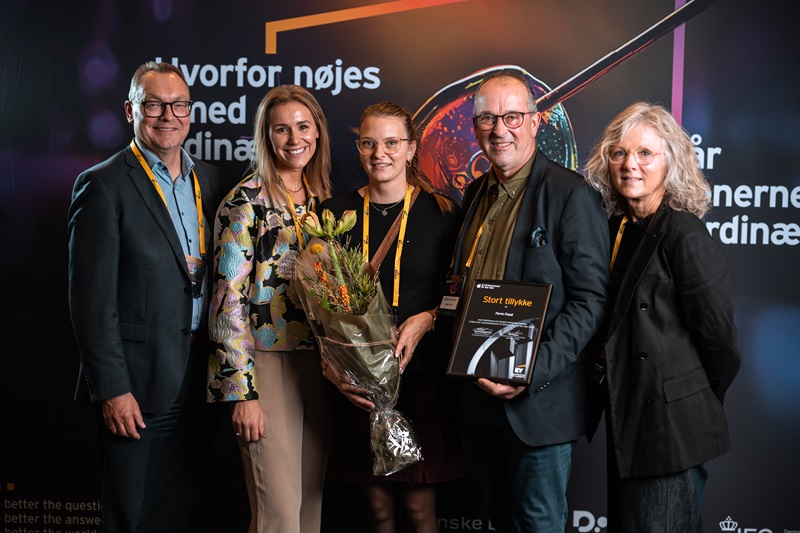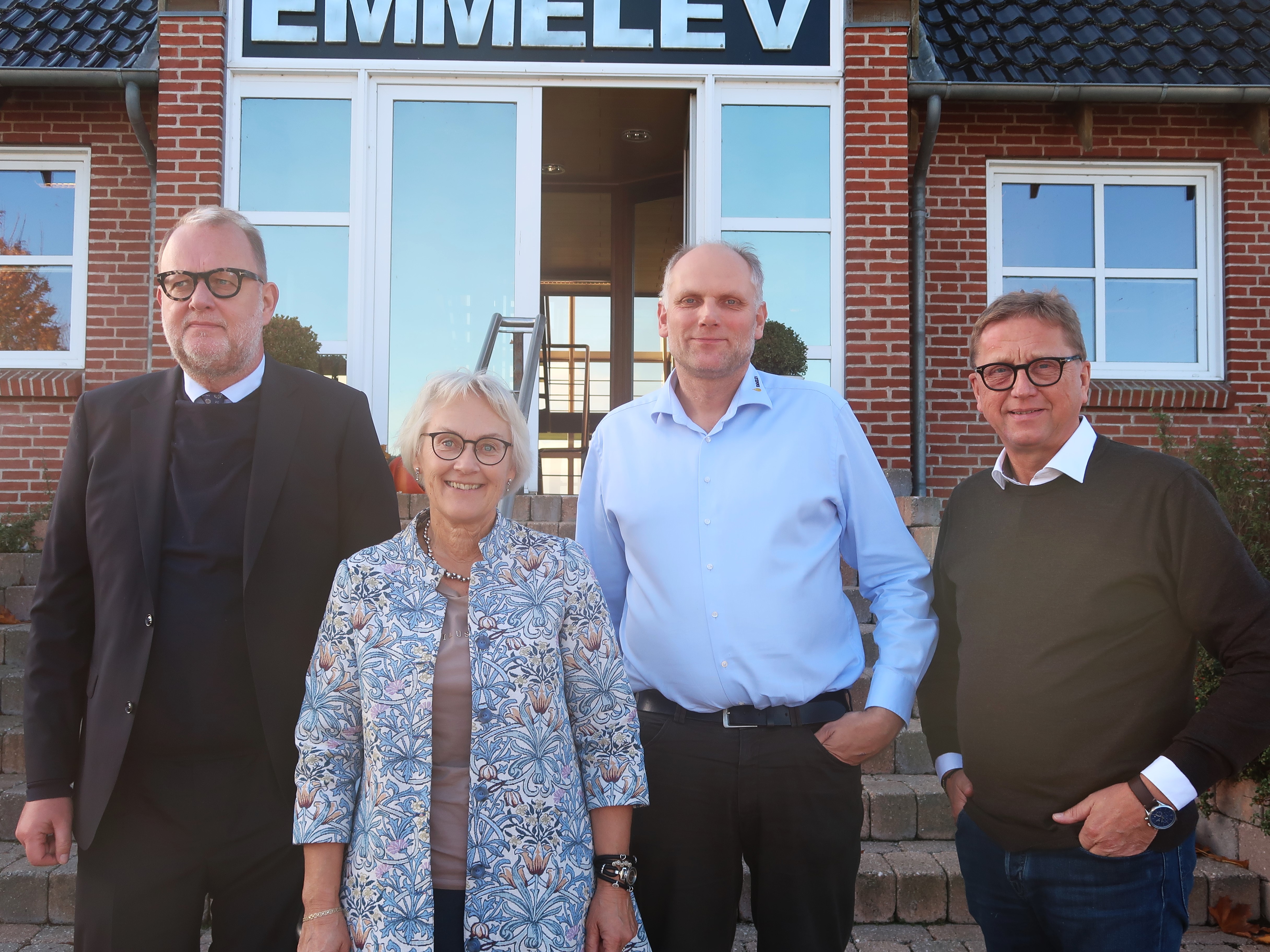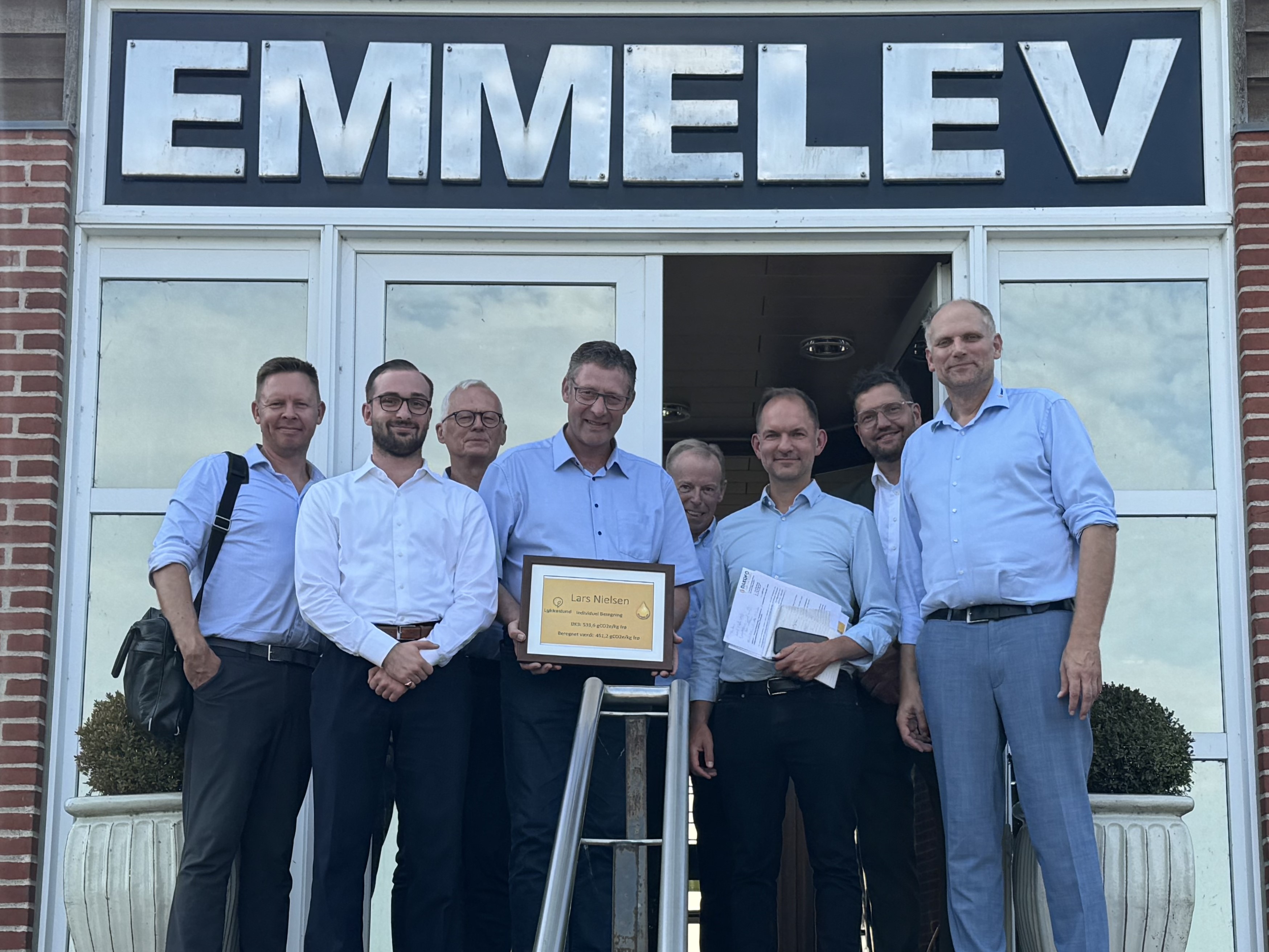Two members of parliament, Lars Chr. Lilleholt (V) and Marie Bjerre (V), visited yesterday Emmelev A/S.
The Role of Biodiesel in Denmark’s Climate Strategy
There should continue to be at least 7.6 percent biofuels blended into the gasoline and diesel sold in Denmark. This is the message from former Minister of Energy, Utilities, and Climate Lars Christian Lilleholt (V), who, together with fellow party member Marie Bjerre, recently visited Emmelev A/S in Nordfyn. Here, climate-friendly biodiesel is produced from rapeseed. “Biodiesel reduces CO2 emissions by 70 percent, and Emmelev A/S produces a significant portion of the biodiesel used domestically as an additive to fossil diesel,” says Lars Christian Lilleholt.
Need for Clarification on Blending Requirements
The two members of parliament believe that biodiesel will play a significant role in heavy transport in the upcoming climate adaptations. Biodiesel can immediately and without technical modifications replace fossil diesel as fuel for heavy traffic, thus contributing to a quick reduction of Danish CO2 emissions from the critical transport sector.
“We are approaching climate negotiations shortly, and it is necessary to get clarification on the blending requirement. I sense that the government is hesitating, but the entire industry needs clarity, and we are convinced that we should at least maintain a blending percentage of 7.6 – preferably as high as possible,” says Marie Bjerre.
Creating Danish Jobs and Reducing Pollution
“It’s not just good for the climate when cars, trucks, and buses run on Danish-produced biodiesel. Biodiesel as fuel also helps reduce air pollution in large cities, and it contributes to creating Danish jobs and avoiding the import of raw materials from other parts of the world,” says Marie Bjerre, noting that many buses and trucks in Sweden run on 100 percent biodiesel. Emmelev A/S produces biodiesel from Danish GMO-free rapeseed. There is also other Danish biodiesel production and large-scale production in countries like Germany, Poland, and Sweden.
Climate-Friendly Rapeseed Production
Rapeseed is grown by Danish farmers and is a well-known and tested winter crop with several benefits for crop rotation and the environment. The agricultural sector is working diligently to reduce CO2 emissions, and the Danish production of rapeseed on 180,000 hectares is one of the most climate-friendly in Europe. When biodiesel is extracted from the rapeseed, the byproduct, which makes up about two-thirds of the total volume, is used for protein-rich and GMO-free feed cakes for livestock, thus replacing imported soy meal from other parts of the world where rainforests are cleared to support agricultural production. Additionally, glycerin is produced for use in food and pharmaceutical production.
In Denmark, diesel consumption for public transport is about 150 million liters per year. If this fossil oil is replaced by biodiesel, the CO2 savings would be approximately 300,000 tons per year.





